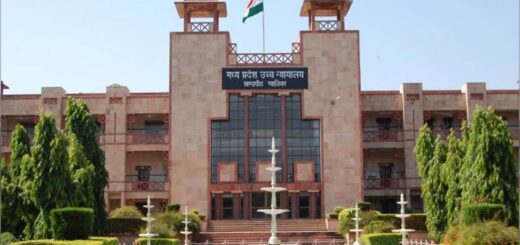The Karnataka High Court has stated that only the Wakf Tribunal has the authority to decide on the nature of Waqf.

The Karnataka High Court has ruled that only a Wakf Tribunal can decide issues related to waqf. The Court canceled the actions taken by the Law Committee of the Karnataka State Board of Waqf, stating that the Committee lacked the authority to review a 1976 decision made by the then Administrator of the Karnataka State Board of Waqf, which classified part of the disputed property as private. Justice M.G.S. Kamal noted that the 1976 order was issued by the Waqf Board’s Administrator, who had the necessary powers to make such decisions. He emphasized that this order cannot be overturned or reviewed without a competent court or tribunal. Thus, the actions taken by the State Board of Waqf on March 12, 2020, to nullify the Administrator’s order were beyond their legal authority under the Waqf Act.
Senior Advocate G. Krishnamurthy represented the Petitioner, while Advocate Haneef represented the Respondents. The Petitioner filed a Writ Petition to annul the proceedings initiated by the Respondents. The conflict involved property that was originally designated as Waqf property in a 1965 notification by the Mysore State Board of Waqf. In 1976, the Administrator of the Karnataka State Board of Waqf ruled that part of the property was private and ordered its removal from the Waqf list, which was later formalized through a notification. The Petitioner claims to be a descendant of Shah Mohammed Raza Ali Shah Shuttari, the original owner of the property.
In 2020, a Committee was formed to review a decision made in 1976. The Respondents raised objections, citing the principle that “once a Waqf, always a Waqf,” and claimed the notification was unlawful. The Committee intended to re-register the property as Waqf property in the government gazette. The High Court determined that the Waqf Board’s actions to create a Law Committee to overturn an Administrator’s decision regarding Waqf property were beyond the scope of the Waqf Act. The Bench observed that the Karnataka State Waqf Board established the current Committee to reverse the Administrator’s order based on the principle of “once a Waqf, always a Waqf,” rather than on claims of fraud or misrepresentation.
The Court noted that even if the Administrator’s order was considered void from the start, it would remain effective until a competent court officially nullified it. Therefore, the Court stated that any questions about the Waqf’s nature could only be resolved by a Tribunal at the request of the Board, the mutawalli of the Waqf, or any affected individual. As a result, the High Court approved the Petition.
Cause Title: Jabir Ali Khan Alias Shuja v. Karnataka State Board Of Wakfs & Ors. (Neutral Citation: 2024:KHC:36898)
Appearance:
Petitioner: Senior Advocate G. Krishnamurthy; Advocate Mohammed Arif Khan Makki
Respondents: Advocates Haneef, Mohammed Niyaz S., Manamohan P.N., and Ayaz Ahmed








